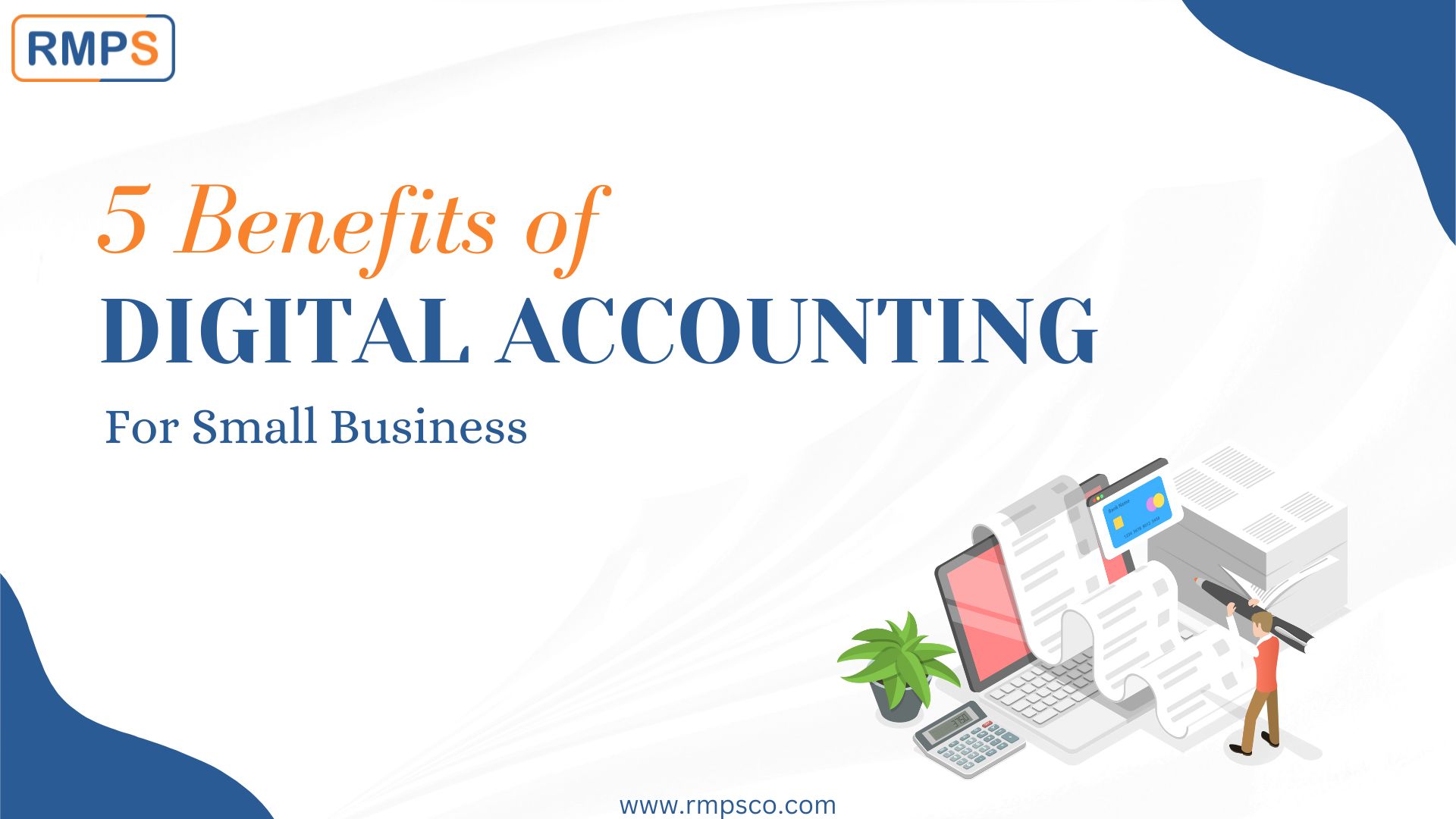
In today’s fast-paced business world, embracing technology is no longer a luxury but a necessity. For small businesses, digital accounting can be a game-changer. Transitioning from traditional methods to digital platforms offers significant advantages, from streamlined operations to better financial insights. Here’s a look at the top five benefits of switching to digital accounting:
1. Enhanced Efficiency and Time Savings
Manual accounting methods are time-consuming and prone to human error. Digital accounting automates repetitive tasks such as data entry, reconciliation, and invoice generation, freeing up valuable time.
With features like real-time updates and auto-syncing, business owners can focus on growing their businesses rather than getting bogged down by paperwork.
2. Cost-Effective Financial Management
Many platforms offer affordable pricing plans tailored to small businesses. By eliminating the need for extensive paper records, physical storage, and frequent consultations with accountants, businesses can significantly reduce costs.
Additionally, cloud-based solutions minimize IT infrastructure expenses, making digital accounting a cost-efficient choice.
3. Improved Accuracy and Reduced Errors
Manual accounting increases the risk of errors in calculations, misclassifications, and overlooked transactions. Digital accounting systems are designed to handle complex computations with precision.
With built-in checks and controls, businesses can maintain accurate records, ensuring compliance with tax regulations and reducing the risk of penalties.
4. Real-Time Financial Insights
Digital accounting platforms provide real-time dashboards and analytics, offering business owners a clear view of their financial health at any moment.
This capability enables better decision-making, helps identify trends, and supports strategic planning. From cash flow management to profit tracking, these tools empower businesses with actionable insights.
5. Easy Compliance and Tax Preparation
Tax compliance can be a daunting task, especially for small businesses with limited resources. Digital accounting simplifies this process by automatically generating tax reports and ensuring records are up to date.
Many platforms also integrate with government tax systems, making filing returns quicker and hassle-free.
Conclusion:
Switching to digital accounting isn’t just a trend; it’s a strategic move for small businesses looking to stay competitive. By enhancing efficiency, reducing costs, and providing invaluable financial insights, digital accounting lays the foundation for sustainable growth.
LinkedIn Link : RMPS Profile
This article is only a knowledge-sharing initiative and is based on the Relevant Provisions as applicable and as per the information existing at the time of the preparation. In no event, RMPS & Co. or the Author or any other persons be liable for any direct and indirect result from this Article or any inadvertent omission of the provisions, update, etc if any.
Published on: November 16, 2024
